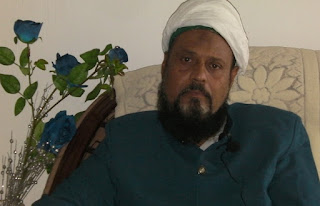 It is essential that you know with certainty that you have a God, Creator, and Support of all existence Who is Almighty, and whose attributes are eternal and immutable. He is distant, yet close. He is close, yet distant. He is One, but His manifestations are manifold. God cannot undergo any change, for He is eternally unchanging and Perfect in His attributes. Do not prefer the world, its resources or your loved ones to Him, but prefer Him to everything else so that in heaven you will be among those registered in His community.
It is essential that you know with certainty that you have a God, Creator, and Support of all existence Who is Almighty, and whose attributes are eternal and immutable. He is distant, yet close. He is close, yet distant. He is One, but His manifestations are manifold. God cannot undergo any change, for He is eternally unchanging and Perfect in His attributes. Do not prefer the world, its resources or your loved ones to Him, but prefer Him to everything else so that in heaven you will be among those registered in His community. The Omnipotent God has always shown His mercy. If you want to enjoy it, make sure that nothing separates you from Him, that your will submits entirely to His, and that your pleasures and desires are identified completely with His. Whatever the circumstances, whether successful or unsuccessful, always bow down before the threshold of His Throne, that He may accomplish what He wishes. Deploy whatever is in your power to establish His Oneness on earth. Show kindness and mercy to His creatures; do not harm them, be it with your tongue, hands or any other means, and work to promote their well-being [to improve their plight].
Do not act proudly with anyone, even if he is your subordinate or servant, and do not swear at anyone even if you are insulted. Be humble and kind, and have real sympathy for your fellow human beings so that God accepts you. There are many who are only humble in appearance, but deep down, they are real hungry wolves. Externally, they seem to have a pure nature, but internally, they are real vipers. God will only accept you if your tongue and your actions conform to your heart. If you have a high rank, show consideration for those who are below you, and do not despise them. If you are learned, do not boast about it, and do not conceivably disdain the ignorant, but enlighten them with your good advice. If you are rich, don’t boast about it, and don’t flaunt your pride before the poor, but serve them and help them.


